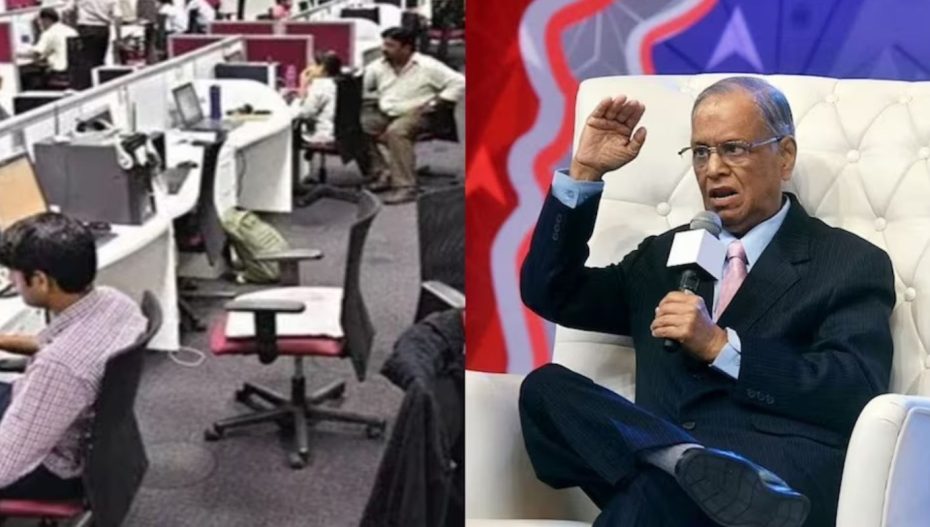Work, money, or peace of mind? These life choices are forever in conflict with one another. In an intensely competitive environment, we are allowed to choose only one.
So, when Infosys founder and tech billionaire Narayana Murthy said that Indian youth should increase the number of hours at work, it fanned debate. Seventy-hour workweek at the expense of what? And should everyone be bound by the same rule?
Now, a media outlet, citing a report from The Economic Times, has said that according to The International Labour Organisation (ILO), the 70-hour workweek is not mandated by any national law in any country.
India has the longest average work week, according to NDTV, which has cited an ILO study. The comparison was done with the 10 largest world economies.
With an average of 47.7 working hours every week (nearly 48 hours a week), Indians are ranked seventh on the list of countries that work the most globally, it says.
According to the ILO report, the only countries with longer average workweeks than India are Qatar, Congo, Lesotho, Bhutan, Gambia, and the United Arab Emirates.
The ILO study also demonstrates the inverse association between weekly working hours and prosperity. Accordingly, nations with shorter workweeks typically have a GDP per capita that is higher. Consider the case of Switzerland. An average Swiss worker puts in 31.6 hours a week at work. The GDP per person in Switzerland is $93,421 (or around Rs 77,74,701). Among the top economies, France has the shortest workweek (30.1 hours), but it also has one of the highest per capita GDP statistics ($55,493; approximately ₹ 46,16,620), indicating a more rich and productive economy.
India, on the other hand, has one of the lowest per capita GDP levels and the longest weekly working hours among the top 10 economies.
Many industrialists backed Narayana Murthy’s proposal for a 70-hour work week, arguing that India required its citizens to put in more hours than usual.
Also Read: University of Wollongong to Open International Campus in India











